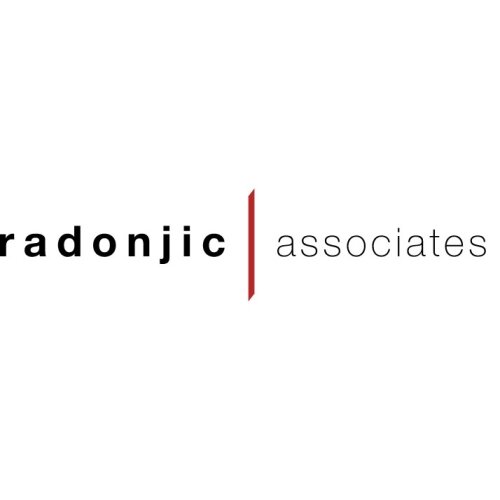Best Public-Private Partnerships (PPP) Lawyers in Montenegro
Share your needs with us, get contacted by law firms.
Free. Takes 2 min.
Or refine your search by selecting a city:
List of the best lawyers in Montenegro
About Public-Private Partnerships (PPP) Law in Montenegro
Public-Private Partnerships, commonly referred to as PPPs, are collaborative arrangements between government bodies and private sector entities to finance, build, and operate projects related to public infrastructure or services. In Montenegro, PPPs are an integral part of the country’s efforts to modernize its economy and public services, particularly in areas like transportation, energy, healthcare, and urban development.
The legal framework for PPPs in Montenegro is designed to attract private investment while safeguarding public interests. The government encourages the participation of private entities to improve efficiency, leverage private sector expertise, and share the risks and rewards associated with major public projects.
Why You May Need a Lawyer
Entering into a PPP arrangement involves navigating a complex field of legal, financial, and regulatory requirements. Here are some common situations where legal expertise is essential:
- Reviewing or drafting PPP contract agreements to ensure your interests are protected
- Guiding foreign investors through the nuances of Montenegrin PPP regulations and processes
- Addressing compliance with local procurement, licensing, and environmental laws
- Managing potential disputes or claims arising from the execution of PPP projects
- Assisting with bid preparation and tender submission for public projects
- Advising public authorities on structuring and implementing PPP initiatives
- Negotiating extensions, amendments, or termination of existing PPP contracts
Legal counsel ensures that all parties understand their obligations and rights, reduces the risk of costly legal disputes, and helps to facilitate the successful delivery of PPP projects in Montenegro.
Local Laws Overview
Montenegro has established a detailed legal framework governing PPPs, primarily through its Law on Public-Private Partnership. Here are the key aspects of local legislation:
- The Law on Public-Private Partnership regulates the establishment, execution, and monitoring of PPP projects in Montenegro
- PPPs in Montenegro can include concession agreements, project finance initiatives, and other collaborative contracts between public and private sectors
- All PPP agreements must promote transparency, competition, and fair opportunity for interested parties
- Projects must be closely aligned with national and local development strategies
- Government entities are required to perform feasibility studies and public consultations before initiating a PPP process
- PPP contracts must clearly define the distribution of risks, rights, and obligations between partners
- Dispute resolution mechanisms, often involving local arbitration or courts, are an essential component of the legal structure
- Procurement processes for PPP projects must comply with applicable public procurement laws and anti-corruption regulations
Frequently Asked Questions
What is a Public-Private Partnership (PPP)?
A PPP is a formal agreement between a government institution and a private company to create, finance, and manage projects or services that serve the public interest, such as roads, hospitals, or utilities.
Who can be a party to a PPP in Montenegro?
Both Montenegrin and foreign companies may partner with national, regional, or municipal government bodies to execute PPP projects, provided they meet the required eligibility and technical criteria.
What sectors in Montenegro most commonly use PPPs?
The most frequent PPP sectors include transportation infrastructure (roads, bridges), energy (power plants, hydroelectric dams), healthcare (hospitals, clinics), waste management, and urban renewal projects.
How are PPP projects selected in Montenegro?
Government authorities identify potential PPP projects based on public needs, feasibility studies, and strategic development plans. Projects must demonstrate public benefit and financial viability before being approved.
What legal documents are involved in a PPP arrangement?
Key documents include the PPP agreement or contract, feasibility studies, tender documents, financing agreements, permits, and detailed risk allocation frameworks.
Is there a competitive bidding process required for PPPs?
Yes, most PPP projects in Montenegro must go through a transparent public tender or competitive bidding process to ensure fairness and the best value for the public.
How is risk shared in PPP contracts?
Risks are allocated based on which party is best able to manage them efficiently, covering areas such as financing, construction, permits, environmental compliance, and operation of the project.
Can disputes arising from PPP contracts be resolved locally?
Yes, disputes are normally resolved through local courts or arbitral tribunals as specified in the PPP agreement, with arbitration commonly used for larger or international collaborations.
Are there incentives for foreign investors in PPPs?
Montenegro actively encourages foreign investment in PPPs with legal protections, investment incentives, and access to international dispute resolution where applicable.
What are the main compliance requirements for PPP projects?
Key requirements include adherence to public procurement rules, compliance with environmental and construction regulations, periodic reporting, and fulfillment of contractual obligations as set out in the PPP agreement.
Additional Resources
For more information and professional support regarding PPPs in Montenegro, consider reaching out to the following institutions and resources:
- The Ministry of Finance and Social Welfare of Montenegro - PPP Department
- Montenegrin Investment Promotion Agency (MIPA)
- Chamber of Economy of Montenegro
- Official Gazette of Montenegro for legal publications and updates
- Reputable local law firms specializing in commercial and administrative law
These organizations can provide guidance, updates, and connections to the formal PPP processes in Montenegro.
Next Steps
If you are considering becoming involved in a PPP project in Montenegro, it is important to seek legal advice early in the process. Start by defining your project interests and gathering all relevant documentation. Research reputable law firms or legal specialists in PPPs and schedule an initial consultation to discuss your goals and requirements.
Prepare questions about the specific sector, legal procedures, and risk management strategies. A qualified lawyer can help you understand your obligations, protect your interests, and guide you through every step of the PPP process, from project selection to contract implementation and dispute resolution.
By taking these steps, you can ensure your PPP venture in Montenegro is legally sound, compliant, and positioned for long-term success.
Lawzana helps you find the best lawyers and law firms in Montenegro through a curated and pre-screened list of qualified legal professionals. Our platform offers rankings and detailed profiles of attorneys and law firms, allowing you to compare based on practice areas, including Public-Private Partnerships (PPP), experience, and client feedback.
Each profile includes a description of the firm's areas of practice, client reviews, team members and partners, year of establishment, spoken languages, office locations, contact information, social media presence, and any published articles or resources. Most firms on our platform speak English and are experienced in both local and international legal matters.
Get a quote from top-rated law firms in Montenegro — quickly, securely, and without unnecessary hassle.
Disclaimer:
The information provided on this page is for general informational purposes only and does not constitute legal advice. While we strive to ensure the accuracy and relevance of the content, legal information may change over time, and interpretations of the law can vary. You should always consult with a qualified legal professional for advice specific to your situation.
We disclaim all liability for actions taken or not taken based on the content of this page. If you believe any information is incorrect or outdated, please contact us, and we will review and update it where appropriate.
Browse public-private partnerships (ppp) law firms by city in Montenegro
Refine your search by selecting a city.















